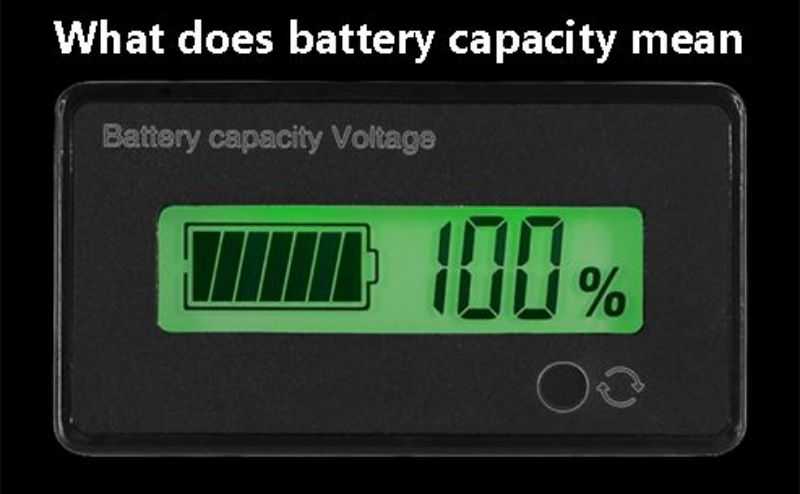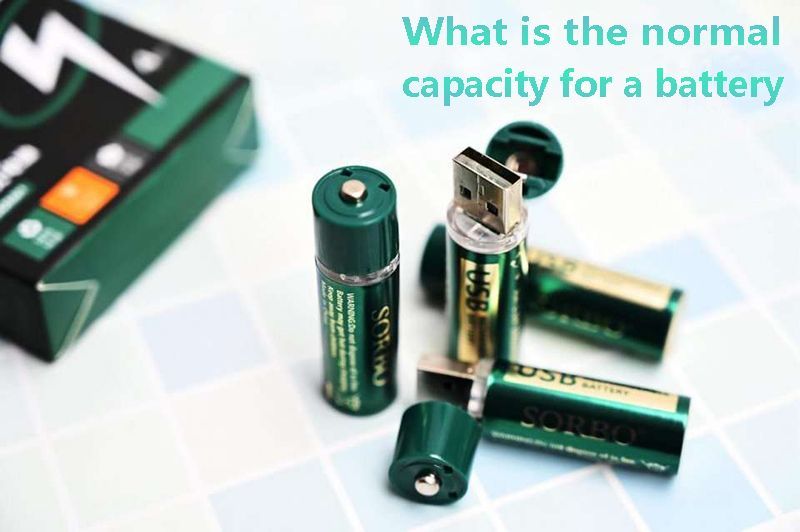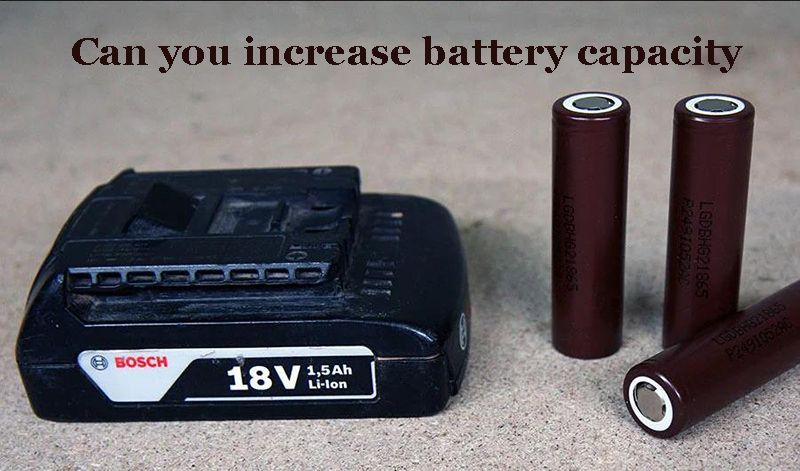
Main content:
- 1.What does battery capacity mean?
- 2.What is normal capacity for a battery?
- 3.How do you calculate battery capacity?
- 4.The unit of battery capacity
- 5.The difference between ah, kwh and volt
- 6.Can you increase battery capacity?
- 7.Factors that affect battery capacity
- 8.How to choose the right battery capacity?
- 9.Why would battery loss capacity?
- 10.The difference between capacity and voltage and how they relate
- 11.How many Ah is a 12v car battery?
- 12.How many hours does a 1500 mAh battery last?
- 13.Final thoughts
Batteries are versatile electrical components in use globally,and they carry the different battery amps. Considered by many to be one of the greatest inventions in history, batteries have gone through multiple reformations and innovations. Currently, efforts to increase battery capacity are at the forefront of cutting-edge research.
1.What does battery capacity mean?
Battery capacity is one of the important performance indicators to measure the performance of the battery. It indicates the power released by the battery under certain conditions (discharge rate, temperature, termination voltage, etc.), that is, the capacity of the battery. Different batteries have varying capacities, and this amount is directly related to the total electrical power generated due to the chemical reactions occurring in the battery cell. The unit of battery capacity is ampere-hour (ah). The capacity varies depending on the amount of active material stored in the battery. Therefore, depending on their application, different batteries have varying amounts of charge. Some release a large amount of electrical power in short periods, while other batteries can provide endurance. Start battery can discharge quickly, deep cycle battery has a long life, heavy weight, can provide long-term stable power supply.
2.What is normal capacity for a battery?

Although there is no standard 'normal' capacity for batteries, you can find specific measurements for the batteries you want to buy. For example, an average automotive battery might have a battery capacity of about 54-60Ah, specified at a current of 3.5 a. These readings are present as they help users understand the average operating time of the battery. In this case, the battery can provide 70 a in an hour. However, if 140 a is the operating electric current, the battery will discharge in 30 minutes.
3.How do you calculate battery capacity?

The battery capacity can be calculated by multiplying the total battery current and the discharge time. For example, if a lithium-ion battery battery discharged at a voltage of 12V can provide a current of 100A for 1 hour, the battery capacity is 100A x 1 h = 100 Ah, which may also be called 12 volt 100ah lithium battery or 12v 100ah deep cycle battery, a 12-volt battery with a 100 ah battery capacity allows energy storage of approximately 12 V x 100 ah = 1,200 wh.
4.The unit of battery capacity
The unit of battery capacity is generally expressed as ampere hour (ah) with the symbol A multiplied by H.Different batteries may have different voltages, when there are different voltage values of batteries, the battery capacity unit can not be expressed by amp per hour, should be used as the unit of battery capacity, work is equal to power multiplied by time..
5.The difference between ah, kwh and vol
Ah, or ampere hour is the unit of battery capacity. It is an arbitrary unit used to measure the total amount of electrical power a battery can generate over a specified period. In comparison, wh or watt hour is the unit of energy. This specification is written on each battery or comes in its user manual. kwh is a unit of electricity whose scientific name is kilowatt-hour, it is short for kiloWatt-hour, meaning the 1,000-watt appliance uses an hour of electricity, which is the symbol of the unit kilowatt-hour of electricity consumption. Volt or v is the voltage or potential difference a battery has. Potential difference is the driving force behind the electric current generation within a cell. The higher the voltage of a battery gets, the greater the amount of energy it can supply.
6.Can you increase battery capacity?

The capacity of a battery depends on the following factors: The size and number of plates in a cell: If the size of the plates inside a cell is kept large or if the number of plates in kept high, the battery capacity increases. Batteries conduct electric current internally with the help of electrolysis. Since this process depends on the electrodes, increasing their number or size can potentially increase the capacity of a battery. The battery's ability to store and deliver energy will increase if the active ingredient in the battery plates is excessive, either in amount or ion content.
Battery capacity is also dependent on the electrolyte density: If a high-density electrolyte is in a battery, the battery capacity will increase to a certain extent. This process happens as the electrodes can only complete electrolysis if an electrolyte is present in the cell. A high-density electrolyte ensures an abundant supply of ions for conductance. However, increasing density comes hand in hand with shorter battery life. Therefore, the electrolyte density cannot be increased at will because the capacity would increase at the expense of battery life.
7.Factors that affect battery capacity

There are several factors affecting battery capacity. The major ones are ambient temperature, cycling, maintenance, chemistry, and application.
① Ambient temperature
The rated capacity of a battery depends on a fixed ambient operating temperature of 25°c (77°f). Any variation from this optimum temperature can alter the battery performance adversely and shorten its expected life. Ambient temperature can even reduce battery capacity and cause serious problems while charging and discharging, like burnouts and overheating. For every 8.3°c (15°f) average annual temperature above 25°c (77°f), the battery life is reduced by 50 %.
② Cycling
Once a battery is at a low capacity, it needs charging. This discharging and charging is cycling. At installation, the battery is at 100 percent of rated capacity. Each discharge and following charge cycle reduces the battery capacity by a small percentage. The reduction in battery capacity depends on the length and depth of the discharge cycle. Lead-acid batteries deliver a maximum number of discharge and charge cycles before reaching the end of their life. At this point, the battery needs replacement.
③ Battery chemistry
Because of the chemical make-up of batteries, their ability to deliver and store power slowly decreases over time. Even if you follow all the guidelines for storage temperature and proper maintenance, you still must replace them after a certain period.
④ Application
The appropriate battery application for the given application is essential. Problems arise if the wrong battery is in use. For example, ups batteries such as the c&d technologies mr and the enersys hx line are rated in watts-per-cell and deliver very high rates for a short period. On the other hand, telecom and switchgear batteries are rated in ampere-hours and are designed to run for longer, typically 4-8 hours. A ups battery installation in a telecom application will cause the user to run the battery for longer than an average ups battery. This use can reduce the battery life. Ups batteries are designed with more thin plates than average batteries to achieve a high discharge rate. Discharging a ups battery for hours will cause the electrode plates to overheat and deflect. When the battery cools, it creates stress on the internal lead strap holding the plates together. Over time this will cause the battery to fail prematurely. Hence, you must ensure that the battery you are using is appropriate for your use.
⑤ Maintenance
This one is a no-brainer. Regardless of how expensive or good-quality your battery is, it will inevitably fail you if not maintained. But it's worth mentioning that lithium-ion batteries are maintenance-free, just with the increase of use times, the chemical materials will gradually fail, and the capacity will gradually decay. Keeping the battery clean, in a cool place, and away from direct sunlight are some basic precautions. This way, your battery's life will extend, and it will not experience problems like premature failures, improper loading, reduced battery life, and terminal heat.
8.How to choose the right battery capacity?

Battery capacity depends entirely on the application. Using the formula mentioned in the preceding text, you can figure out the battery capacity you will need in your use. It is vital to buy a battery that is right for the job to prevent unnecessary repairs and power losses.
9.Why would battery loss capacity?

Battery capacity is related to the battery age. If the battery is old, it will show low battery capacity. This loss happens because battery capacity decreases with age. Therefore, using a newer replacement is another way of increasing battery capacity.
10.The difference between capacity and voltage and how they relate
Battery capacity refers to the total amount of electrical energy stored inside a battery. The battery capacity determines the possible output of the battery and the load it can support. The load requirements are satisfied for preset periods depending on the power content of the battery in use. Exceeding this causes a complete discharge leading to the cell dying. Voltage is the potential difference between the terminals of a battery. The higher the potential difference, the greater the power output and current supply. The potential difference or voltage values are also present in batteries, and usually, several voltage variants are available in the markets for each battery type. It should be noted that voltage and capacity are two completely different parameters, voltage is used to identify the measurement of potential difference, and the battery capacity represents the battery continuous discharge with a certain current, both of them have a certain relationship but not the greater the voltage, the greater the capacity, this is not necessarily. If the same battery is in parallel, the capacity is doubled and the voltage is unchanged, while in series, the capacity is unchanged but the voltage will be doubled.
11.How many Ah is a 12v car battery?
An average 12 v car battery will have a 50 ah reading. Since the car battery has to power many features at once, it supplies 12 v for an hour as long as it discharges at 50 amperes.
12.How many hours does a 1500 mAh battery last?
A 1500 mah battery lasts around 3 hours. This period of operation is only possible when the battery is discharging at a rate of 500 milli-amps per second (mah).
13.Final thoughts
Batteries are everywhere in everyday life. Whether it is your motorcycle batteries or the battery for your gaming console remotes, all electronic items and gadgets are useless without power. These days, the advent of electric cars has led to the demand and production for better battery capacity to go off the charts! Therefore, common knowledge about batteries and battery capacity is a vital tool one should possess. This knowledge will enable better handling and use by consumers in industrial and domestic sectors globally.